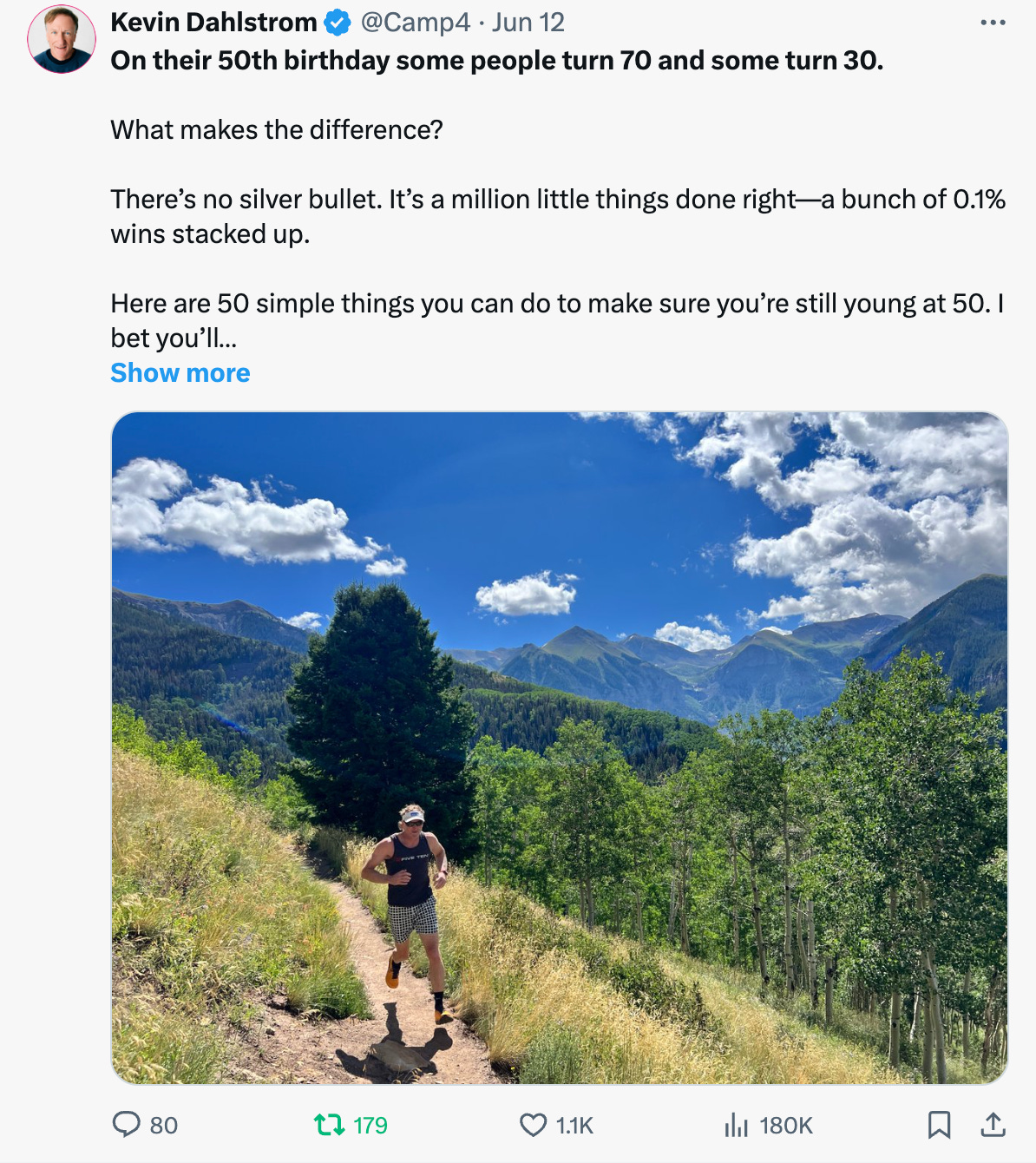Founder Fridays No. 94
Sam Altman’s Startup Playbook -- Startup Management Myths -- How MSCHF Scales Taste
Happy Friday.
Here’s my June playlist it’s primarily focused on singer / songwriters including Noah Kahan, Chance Pena and Zach Bryan.
Sam Altman’s Startup Playbook
A word of warning from Sam Altman about choosing to start a startup: It sucks! One of the most consistent pieces of feedback he gets from Y Combinator founders is that it's harder than they could have ever imagined because they didn’t have a framework for the sort of work and intensity a startup entails. On the other hand, starting a startup is not in fact very risky to your career — if you’re relatively talented, there will be job opportunities if you fail. Most people are very bad at evaluating risk. He thinks the riskier option is having an idea or project you’re really passionate about and working at a safe, easy, unfulfilling job instead. This is a playbook for startups that he created along with the Y Combinator team. It covers 1) the idea 2) the team 3) the product 4) the execution. Sam Altman (34 minutes)
Startup Management Myths
Here are the three common management myths that hinder startups: 1) The Myth of Scaling Without Hierarchy: Some founders believe that they can maintain a flat, egalitarian culture as their startup grows, but evidence shows that a healthy hierarchy with effective managers can reduce ambiguity, align teams and ensure progress. 2) The Myth of Structural Harmony: Maverick leaders often try to quickly resolve structural conflicts that arise naturally between departments competing for resources or steering the company's strategy, but marginalizing one function over another can be detrimental to the organization's overall goals. 3) The Myth of Sustained Heroics: While heroic efforts may be necessary during the early stages of a startup, trying to sustain this intensity for prolonged periods can lead to single-point dependencies, learned helplessness among team members and burnout for the "hero." Harvard Business Review (7 minutes)
How MSCHF Scales Taste
Who is MSCHF, and how has it managed to scale its unique taste through an unconventional business model? MSCHF, a self-described "artist's collective that happened to raise venture capital," has successfully scaled taste by releasing distinctive products every two weeks while embracing the capitalist nature of their enterprise. The collective's success relies on its strong sense of taste, narrative network effects and the willingness of individual artists to subsume themselves to the collective's vision. Napkin Math (11 minutes)
Founder FAQ: What is a stock option?
When employees are granted a stock option, they are given the right to buy a specific number of shares at a fixed price, also known as the exercise price or strike price. The strike price is generally the fair market value of the shares at the time of the grant. For example, suppose an employee receives 10,000 stock options with a strike price of $1 per share. If the company’s stock price increases to $5 per share and the employees exercise their options, they can purchase 10,000 shares for $1 each ($10,000) and sell them on the open market for $5 each ($50,000). This would result in a profit of $40,000. The stock option grant agreement typically includes important details such as: 1) Vesting Schedule. The vesting schedule specifies when an employee’s stock options become exercisable, or in other words, when they can be purchased by the employee. This is usually based on a certain amount of time worked at the company or achieving certain performance milestones. 2) Exercise Price. The exercise price is the price at which an employee can purchase their shares when they decide to exercise their stock options. This price is usually set at the fair market value of the shares at the time of the grant. As the price of the stock increases, the options become more valuable. Westaway (5 minutes)
Startup Funding Guides
I’ve put together a series of guides to equip founders to excel at fundraising. These guides break down the deal term by term and give you negotiation tips so that you can speak to investors with confidence.
Convertible Note: Guide / Video
Is the billable hour right for startups?
Most law firms bill startups by the hour because that's the status quo. But while it may work for big companies, the billable hour is likely the wrong model for startups. Why?
It incentivizes inefficiency. Firms are motivated to pad hours rather than work efficiently. This adds unnecessary costs.
It rewards busywork over results. Startups care about outcomes, not hours logged.
Costs are unpredictable. With fluctuating monthly hours, legal spend is hard to budget.
It stifles innovation. Hourly billing gives no incentive to find better solutions. Startups need forward-thinking counsel focused on results. That's why we've ditched the billable hour for transparent flat fees.
If you're ready to explore a law firm with a better billing model, let's talk.





